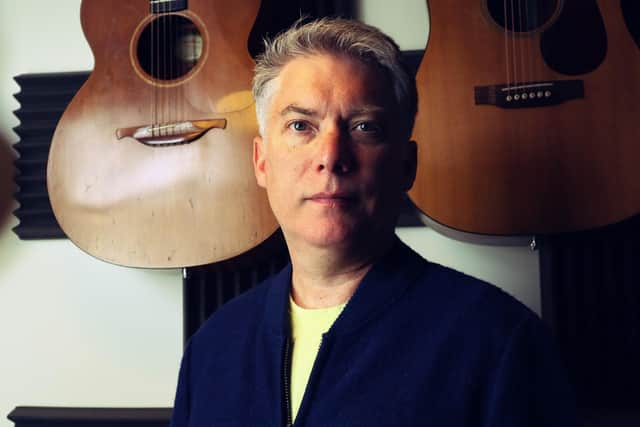North Atlantic Song Convention to bring together traditions from Norway to Newfoundland
Singing voices and ringing strings will pervade Edinburgh this month, as both the North Atlantic Song Convention and the Edinburgh International Harp Festival enliven the capital.
This is just the second North Atlantic Song Convention, the first having been held in Svendborg in Denmark last year, organised by the North Atlantic Song Community, formed as an inclusive international network to promote and celebrate the song traditions of those geographic and cultural regions bordering the North Atlantic Ocean.
Advertisement
Hide AdAdvertisement
Hide AdThis year’s convention will be hosted from 28-30 April with singers, educators, academics, archivists and others converging on the Scottish Storytelling Centre. Brian Ó hEadhra, a founder and co-convenor of the event with Swedish singer Emma Björling, describes it as “a unique opportunity for people from all walks of life to come together and share their love of folk music and song”.


According to Ó hEadhra, an Inverness-based Irish singer and Gaelic administrator, the whole idea for NASC developed just before the pandemic, blossoming as an online community during lockdown. “We’re a group of people who believe we have a shared understanding of tradition and a shared kind of geography across the North Atlantic, as well as historic links through emigration or trade and language.”
A regular visitor to WOMEX (Worldwide Music Expo) and with personal connections with Ireland, Newfoundland and Norway, he was mindful of the long established North Atlantic Fiddle Convention: “I thought to myself that it’s much easier for people to collaborate musically when there’s no language involved, but as soon as you bring in song, you’re bringing in storytelling and history. So I kind of figured that we should be celebrating these connections: there are plenty of things to inspire one another, whether it’s within the tradition or within the music industry or education in folksong or archives.”
The three-day programme includes talks, workshops, singing sessions, concerts and much more. Beginning on the Friday with a keynote speech from leading folklorist, Gaelic singer and author Margaret Bennett, the event also has a Saturday afternoon concert featuring Ó hEadhra in duo with Fionnag NicChoinnich, Björling’s Swedish vocal quartet Kongero, Montreal singer Seán Dagher and Scots singer Scott Gardiner.
If this is just the second NASC convention, the weekend of 7-11 April sees the 42nd Edinburgh International Harp Festival in full fling, with concerts and classes, late-night sessions, makers’ exhibitions and workshops, all based for a second year at George Watson’s College. For learners who can’t get to the event, the festival offers some online courses.
The concert programme is characteristically eclectic, with the Saturday featuring an afternoon performance by German Eva Curth, featuring the music of French composer Bernard Andrès, while the evening concert presents Irish harpist and composer Michael Rooney and the Swedish duo Dråm, who combine harp with Swedish bagpipe as well as the nyckelharpa or keyed fiddle.
Concerts over the next few days include a programme of Manx music from singer Ruth Keggin and harpist Rachel Hair, while another double bill features Breton harpist Clotilde Trouillaud’s contemporary trio Lune Bleue, along with harp-fiddle duo Rachel Newton and Lauren MacColl, who present their Heal and Harrow project in remembrance of those who perished during Scotland’s appalling period of “witch” persecution.
Advertisement
Hide AdAdvertisement
Hide AdAnother “Celtic cousin” is Gwen Mairi, brought up in a Welsh-speaking family in Scotland, who shares a bill with Scots player Neil Wood, while massed harps taking the stage include Na Clàrsairean (the harp orchestra of the Clarsach Society which organises the festival), the Music Generation Ireland Collective and a visiting American ensemble, Harpa.
The long-running event boasts a reputation of being “the friendliest harp festival in the world” and its artistic adviser, Patsy Seddon, states: “Having settled so comfortably into our new venue last year, I can't wait to welcome more people this year to enjoy all the harping goodies we have planned, from inspiring concerts to informal gatherings.”